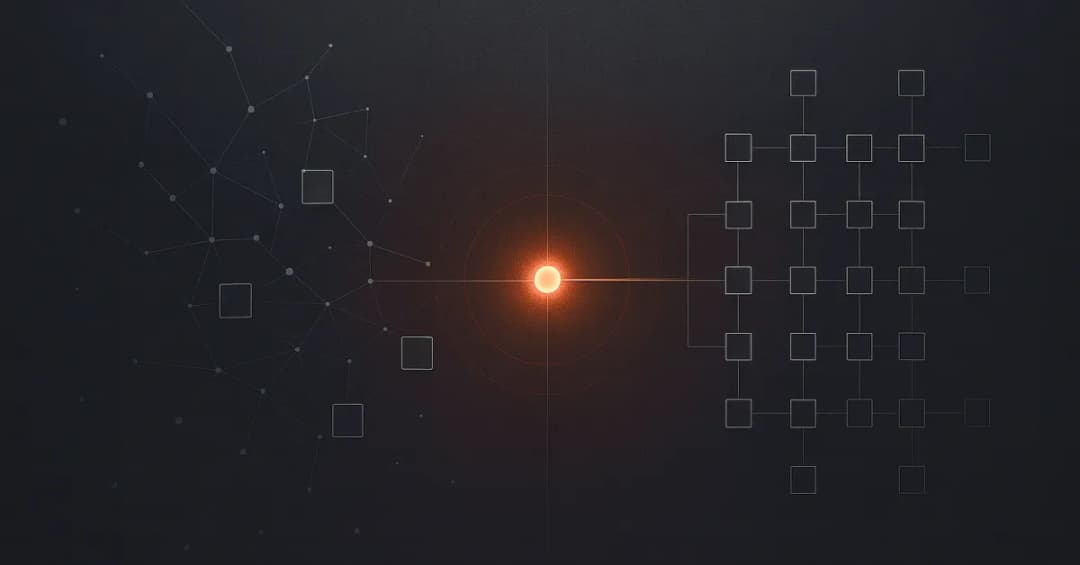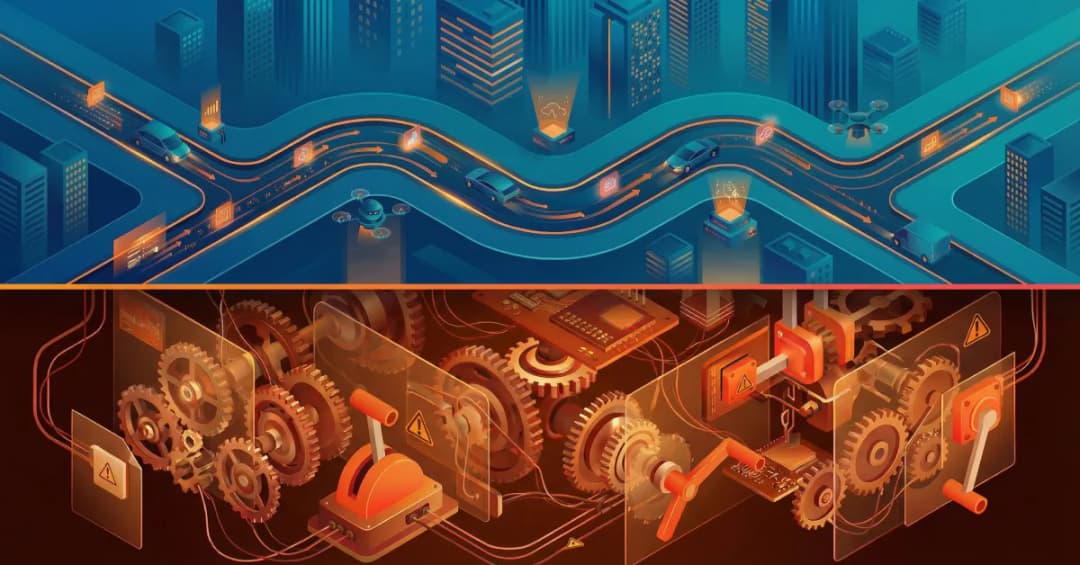8 min read
If AI Disappeared Tomorrow, Would We Still Be Confident?
Vilim Vulama Posted on September 11, 2025
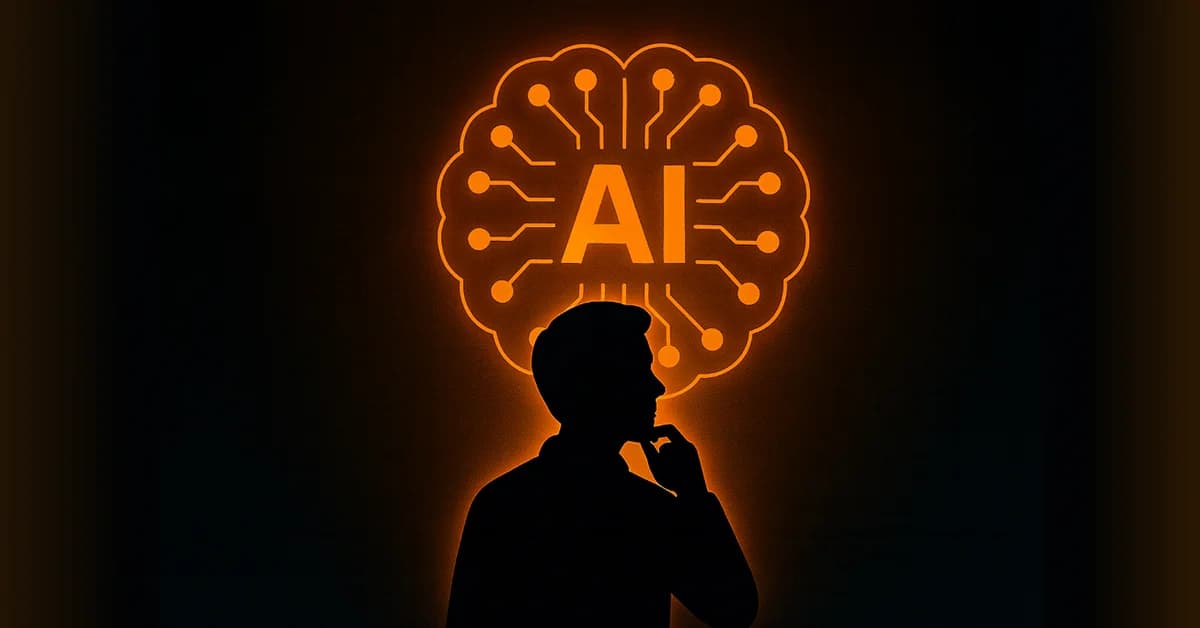
Quick Take
- AI speeds up work, but reliance quietly damages confidence and judgment.
- Productivity gains mean little if teams lose core skills and resilience.
- The strongest teams use AI fluently: combining speed with oversight, practice, and human depth.
AI is everywhere. It helps us write, plan, and present. Yet we rarely talk about how much we actually depend on it.
This shows up in small, telling ways. An email written by AI makes someone sound sharp, until the client asks to jump on a call, and they suddenly can't keep up. Or a team generating content ideas with the help of AI, but when asked why one is better than another, no one has an answer.
These aren't dramatic failures, but they do raise a question: What's happening to our confidence as AI reliance in the workplace continues to grow?
In this article, we'll look at how AI reliance builds, what it does to our confidence, why productivity stats don't tell the whole story, and what teams can do to stay sharp as AI becomes part of almost everything we do.
Table of contents
- How AI Reliance Builds
- What Really Changes When Teams Rely on AI
- Why Productivity Isn't the Whole Story
- So, What If AI Tools Vanished?
- How to Rebuild Confidence
- Final Thought
How AI Reliance Builds
MIT Media Lab studied this recently. They asked people to write essays with and without AI while tracking brain activity. The differences were clear:
Without AI, people engaged the parts of the brain linked to memory and problem-solving. With ChatGPT, brain activity dropped, even though the essays looked just as polished. Later, when AI users had to write on their own, many struggled to recall details of what they'd just written.
The work still got done, but people were less connected to it. And that's how AI reliance builds. Quietly and in ways that don't feel like failure.
What Really Changes When Teams Rely on AI
The obvious worry with AI is bad output (wrong facts, shallow takes, hallucinations). However, the bigger shift happens when no one feels responsible for catching them.
That's when the impact spreads from individual habits to how teams work together:
- Knowledge doesn't stick. A junior analyst leans on AI to prep a report. The slides are clean, but six months later, they haven't built the judgment to spot patterns.
- Decisions get softer. A convincing AI summary goes to leadership; a small error ends up steering next quarter.
- Culture tilts. "Let's see what the AI says" replaces "Let's figure it out." Over time, that chips away at creativity and resilience.
This isn't about speed, but about responsibility. If we outsource judgment, we lose the reflex to check, challenge, and truly own the work.
Why Productivity Isn't the Whole Story
AI advocates love to cite productivity stats. Microsoft's 2025 Work Trend Index says 82% of executives see this year as the turning point for AI adoption, and PwC found that AI-heavy industries have grown in productivity nearly four times faster than others since 2012.
Those numbers are impressive. But productivity doesn't always equal strength.
Take aviation as an example. Autopilot made flying safer, but it also introduced "automation surprise": when the system failed, pilots who weren't sharp on manual flying struggled to take control. Airlines responded with training (simulations, manual drills, and safeguards) designed to keep pilots' skills alive.
Most workplaces adopting AI don't have those safeguards. Teams are moving fast, but without building backup skills. So, are we building skills alongside speed, or just riding the wave until something breaks?
So, What If AI Tools Vanished?
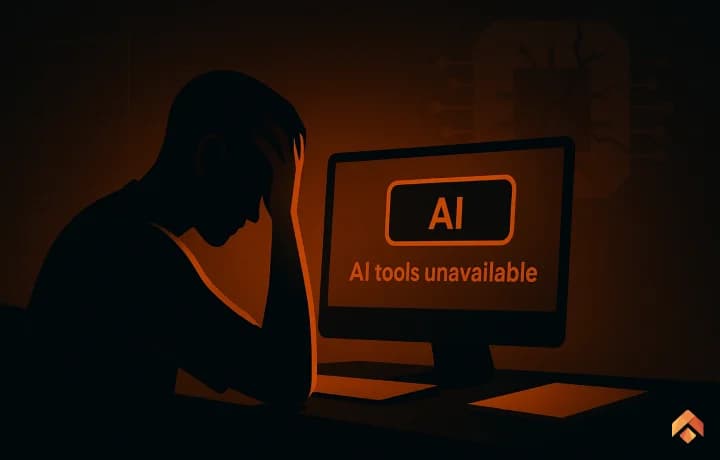
It's a question most teams would struggle to answer.
- Would projects still move, or would they stall?
- Would decisions get made, or would people hesitate?
- Would creativity rise, or would everyone wait for the tools to come back?
For many, what feels like agility is actually just acceleration. Remove the system and momentum stops.
And this isn't some "sci-fi" scenario. Models degrade, licenses expire, regulations change, and outages happen. Even a short disruption is enough to show how dependent teams have become.
The real concern isn't that AI makes people weaker. It's that without realizing it, we may forget how to work on our own.
How to Rebuild Confidence
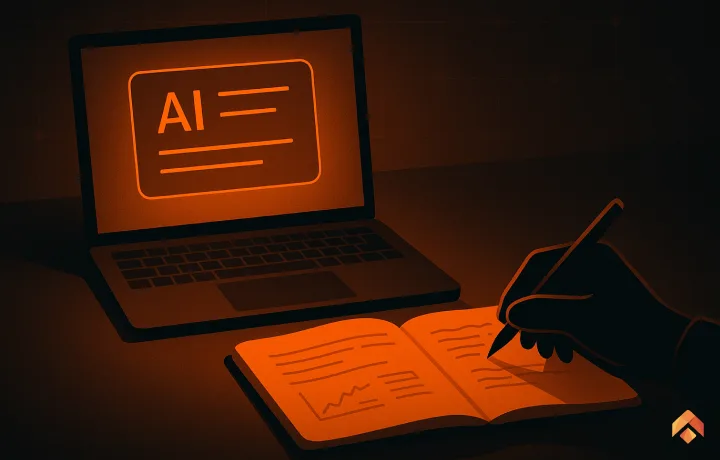
The goal isn't less AI usage; it's fluency. Understanding when AI actually helps and when it hinders thinking.
And some professions already do this well. For example, surgeons work with advanced robotics, but they still practice manual procedures. They run drills, debrief mistakes, and keep their baseline skills sharp. They don't avoid the tools; they balance them.
Teams can do something similar:
- Don't just accept AI outputs. Make sure someone can explain them clearly in their own words.
- Create moments where work gets done without automation, as practice.
- Reward efficiency, judgment, and originality.
Fluency means treating outputs as starting points, not answers, and combining machine speed with human depth. It's what keeps people engaged even as tools become part of everything we do.
Final Thought
The future of work won't belong to the fastest AI adopters. It will belong to the teams that use AI deeply without losing their own confidence in the process.
If the tools you rely on tomorrow, would your team be able to move forward?
The answer might say more about long-term strength than any productivity chart ever could.
